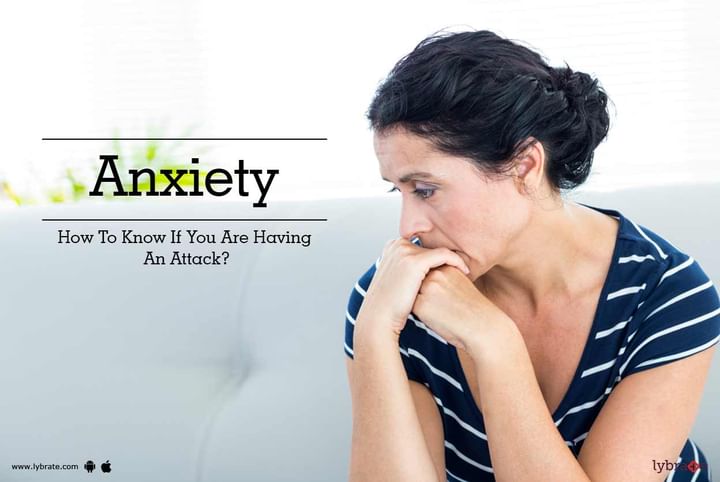Get the App
For Doctors
Login/Sign-up
Last Updated: Jan 10, 2023
BookMark
Report
Anxiety - How To Know If You Are Having An Attack?
Everyone gets worried and anxious now and then. However, for some people, anxiety is a constant companion, which is not at all normal. Anxiety disorders can interfere with your day to day life and should be treated as a mental illness. Anxiety disorders can be treated as long as they are diagnosed early enough.
There are many types of anxiety disorders, including:
- Panic disorders: Frequent panic attacks that make a person sweat excessively, have palpitations and feel as though they were choking are characteristic signs of panic disorders. People suffering from this disorder may equate their experience to that of having a heart attack.
- Social anxiety disorder: This is also known as social phobia. Patients suffering from this disorder are extremely self-conscious in social situations and constantly worry about how they are perceived by others. This makes them seem very quiet and introverted.
- Generalised anxiety disorder: Some people can have anxiety attacks even without a trigger factor. In such cases, they are said to be suffering from generalised anxiety disorder. This condition is marked by unrealistic worries and tensions.
- Phobias: Phobias of fear of specific situations or objects are another common type of anxiety disorder. Depending on the severity of the phobia, it can affect the daily lifestyle of a person. For example, a person with a fear of heights may not be able to go to work if his office is on the 10th floor of a building.
Some of the characteristic symptoms of anxiety disorders are:
- Panic attacks
- Insomnia
- Sweaty palms or feet
- Shortness of breath
- Palpitations
- Nausea
- Dizziness
Though the exact cause of anxiety is not known, exposure to stress and surroundings of a person play an important role in triggering this condition. Chronic stress can reprogram nerve connections that regulate emotional responses in the brain. Anxiety disorders may also be passed on from parent to child genetically.
- Anxiety disorders cannot be prevented, but they can be treated and managed through medication and psychotherapy. The exact course of treatment depends on the type of anxiety disorder being treated.
- Antidepressants, anticonvulsant medication and antipsychotics are often used to reduce the symptoms of anxiety disorders. Using a combination of psychotherapy and cognitive behavioural therapy, the patient may be taught how to recognise thought patterns and triggers that cause anxiety and how to deal with them.
- Meditation and other forms of relaxation therapy can also help calm a person down during an anxiety attack. Further, making a few lifestyle changes that limit exposure to stress can help manage anxiety resulting from it. If you wish to discuss about any specific problem, you can consult a Psychiatrist.



+1.svg)
